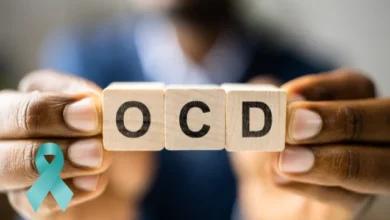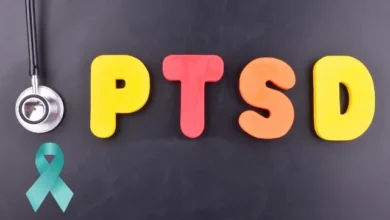Psychosis: Symptoms, Causes, and Treatment
A Comprehensive Guide to Managing Severe Mental Health Conditions
Mental health issues are a significant concern for many people worldwide. Various symptoms and signs can indicate mental health problems, and it’s crucial to recognize them early. Today, we will delve into a severe mental health condition known as psychosis.
What is Psychosis?
Psychosis is a severe mental health condition characterized by hallucinations (visual or auditory distortions) and delusions (false beliefs). Individuals with psychosis often lose touch with reality, making it a critical condition that requires immediate medical attention. If left untreated, psychosis can pose a risk not only to the individual but also to those around them.
The Impact of Psychosis
Psychosis can significantly impact an individual’s life, affecting their relationships, work, and daily activities. The condition can be isolating, as individuals may withdraw from social interactions and struggle to maintain connections with friends and family. Early intervention and treatment are essential to minimize the long-term effects of psychosis.
Symptoms of Psychosis
Recognizing the symptoms of psychosis is essential for early intervention and treatment. Here are some common symptoms:
Hallucinations
Hallucinations involve perceiving things that do not exist. This can include seeing, hearing, or feeling things that are not real. Hallucinations are a common symptom of psychosis and can be very distressing for the individual experiencing them.
Types of Hallucinations
- Visual Hallucinations: Seeing things that are not there, such as people, objects, or patterns.
- Auditory Hallucinations: Hearing voices or sounds that are not present.
- Tactile Hallucinations: Feeling sensations on the skin, such as crawling or tingling.
- Olfactory Hallucinations: Smelling odors that are not there.
- Gustatory Hallucinations: Tasting flavors that are not present.
Delusions
Delusions are false beliefs that are firmly held despite evidence to the contrary. For example, a person with psychosis might believe that their family members are conspiring against them, even though there is no evidence to support this belief.
Types of Delusions
- Persecutory Delusions: Beliefs that one is being harmed, harassed, or conspired against.
- Grandiose Delusions: Beliefs that one has exceptional abilities, wealth, or fame.
- Erotomanic Delusions: Beliefs that someone, often a famous person, is in love with the individual.
- Jealous Delusions: Beliefs that one’s partner is unfaithful.
- Somatic Delusions: Beliefs that one has a physical defect or medical condition.
Catatonia
Catatonia refers to a state of muscular rigidity and stupor. Individuals with psychosis may experience uncontrolled movements or remain in a fixed position for extended periods.
Symptoms of Catatonia
- Catalepsy: Maintaining a rigid posture for an extended period.
- Waxy Flexibility: Allowing the limbs to be moved into positions that are held for a long time.
- Mutism: Refusal to speak.
- Negativism: Resisting attempts to be moved or refusing to follow instructions.
- Echolalia: Repeating words or phrases spoken by others.
- Echopraxia: Mimicking the movements of others.
Thought Disorder
Thought disorder involves disorganized thinking, speech, and behavior. This can make it difficult for the individual to communicate effectively or perform daily tasks.
Examples of Thought Disorder
- Derailment: Suddenly switching topics in a conversation.
- Tangentiality: Providing irrelevant answers to questions.
- Word Salad: Using words in a random, incoherent manner.
- Neologisms: Creating new words that have no meaning to others.
- Poverty of Speech: Speaking very little, even when prompted.
Other Symptoms
- Sleep Disturbances: Difficulty sleeping or excessive sleeping.
- Depression: Feelings of sadness and hopelessness.
- Anxiety: Persistent worry and fear.
- Attention Problems: Difficulty concentrating or focusing.
- Social Withdrawal: Avoiding social interactions and isolating oneself.
- Suicidal Thoughts: Thoughts or attempts of suicide.
Causes of Psychosis
Psychosis can be caused by a variety of factors, including:
- Genetic Factors: A family history of mental health issues increases the risk of developing psychosis.
- Substance Abuse: Regular use of drugs can lead to psychosis.
- Environmental Factors: Living in a stressful or depressing environment can contribute to the development of psychosis.
- Brain Tumors: Tumors in the brain can cause psychosis.
- Neurological Disorders: Conditions like Parkinson’s disease and Huntington’s disease can increase the risk of psychosis.
- Bipolar Disorder: Individuals with bipolar disorder are at a higher risk of developing psychosis.
- Delusional Disorder: This condition can also lead to psychosis.
- Psychotic Depression: Severe depression can sometimes manifest as psychosis.
- Schizophrenia: This is a significant risk factor for psychosis.
Risk Factors for Psychosis
- Trauma: Experiencing traumatic events, such as abuse or neglect, can increase the risk of psychosis.
- Stress: High levels of stress can trigger psychotic episodes.
- Sleep Deprivation: Lack of sleep can lead to psychosis.
- Medical Conditions: Certain medical conditions, such as epilepsy or autoimmune disorders, can increase the risk of psychosis.
What to Do if Someone Has Psychosis
Step 1: Observation and Evaluation
If you suspect someone has psychosis, observe their behavior and symptoms. If they exhibit signs of psychosis, it is crucial to seek medical help immediately. A doctor will evaluate the individual and may refer them to a psychiatrist for further treatment.
Step 2: Medication
Doctors typically prescribe antipsychotic medications to help manage hallucinations and delusions. These medications can help the individual distinguish between reality and illusion.
Common Antipsychotic Medications
- First-Generation Antipsychotics: Such as chlorpromazine and haloperidol.
- Second-Generation Antipsychotics: Such as clozapine, risperidone, and olanzapine.
Step 3: Follow Medical Advice
It is essential to follow the doctor’s advice and recommendations. This may include counseling and psychotherapy, which can help individuals with psychosis manage their symptoms and improve their quality of life.
Types of Therapy
- Cognitive Behavioral Therapy (CBT): Helps individuals identify and change negative thought patterns.
- Family Therapy: Involves family members in the treatment process to provide support and understanding.
- Group Therapy: Provides a supportive environment for individuals to share their experiences and learn from others.
- Art Therapy: Uses creative expression to help individuals process their emotions and experiences.
Step 4: Family Support
Dealing with psychosis requires a strong support system. Family members should be involved in the treatment process and provide continuous support and understanding. It is important not to leave the individual alone, as they may feel isolated and disconnected from their family.
Tips for Family Members
- Educate Yourself: Learn about psychosis and its symptoms to better understand what the individual is experiencing.
- Communicate Openly: Encourage open communication and listen to the individual’s concerns and feelings.
- Provide Emotional Support: Offer reassurance and support to help the individual feel less alone.
- Encourage Treatment: Support the individual in seeking and adhering to treatment.
- Take Care of Yourself: Caring for someone with psychosis can be stressful, so it’s important to take care of your own mental health.
Living with Psychosis
Living with psychosis can be challenging, but with the right treatment and support, individuals can manage their symptoms and lead fulfilling lives. It’s essential to stay connected with friends and family, engage in activities that bring joy, and maintain a healthy lifestyle.
Coping Strategies
- Establish a Routine: Maintain a daily routine to provide structure and stability.
- Practice Self-Care: Engage in activities that promote relaxation and self-care, such as meditation, yoga, or exercise.
- Seek Support: Join support groups or connect with others who have experienced psychosis.
- Set Realistic Goals: Set achievable goals and celebrate small victories.
- Stay Informed: Stay up-to-date on the latest research and treatments for psychosis.
Conclusion
Psychosis is a severe mental health condition that requires immediate attention and treatment. Recognizing the symptoms and seeking professional help is crucial for managing this condition. If you or someone you know is exhibiting signs of psychosis, do not hesitate to seek medical help.
Stay tuned for more informative articles on mental health. Until then, take care and stay healthy. Thank you for reading!
FAQs
What are the early signs of psychosis?
Early signs of psychosis can include changes in behavior, such as social withdrawal, difficulty concentrating, and sleep disturbances. Hallucinations and delusions may also be present.
Can psychosis be cured?
Psychosis is a treatable condition, but it often requires long-term management. Medications and therapy can help manage symptoms and improve quality of life.
What should I do if I suspect someone has psychosis?
If you suspect someone has psychosis, it is essential to seek medical help immediately. Observing their behavior and symptoms can help in the early diagnosis and treatment of the condition.
How is psychosis treated?
Psychosis is typically treated with a combination of antipsychotic medications, counseling, and psychotherapy. Family support and a stable environment are also crucial for managing the condition.
Can substance abuse cause psychosis?
Yes, regular use of drugs can lead to psychosis. It is essential to avoid substance abuse to reduce the risk of developing this condition.
What are the risk factors for psychosis?
Risk factors for psychosis include a family history of mental health issues, trauma, stress, sleep deprivation, and certain medical conditions.
How can family members support someone with psychosis?
Family members can support someone with psychosis by educating themselves about the condition, communicating openly, providing emotional support, encouraging treatment, and taking care of their own mental health.
What are some coping strategies for living with psychosis?
Coping strategies for living with psychosis include establishing a routine, practicing self-care, seeking support, setting realistic goals, and staying informed about the latest research and treatments.








